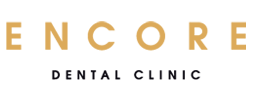In a typical scenario, healthy dentition is characterized by the perfect alignment of the lower primary or permanent teeth and the ideal alignment of the upper primary or permanent teeth. This is also referred to as your “bite.” It’s no wonder that people with straight teeth are happier. Having a healthy dentition looks nicer and makes chewing and speaking easier. Let’s examine what a healthy bite looks like in the lower jaw.
Healthy Dentition Of The Lower Jaw
Imagine looking down at your lower teeth from above. This is called the “dental arch view.” The teeth are not rotated, every tooth touches each other, and there is no interdental space (gaps) between them.
In a normal bite, the upper teeth rest a little outside the lower teeth at the front and back and on both sides of the mouth. If the teeth are not aligned properly, you have a bad bite called a malocclusion.
Malocclusion Vs. Healthy Dentition
Malocclusion is the misalignment of the teeth, which negatively impacts your quality of life. Whereas healthy dentition allows you to look and feel more confident, malocclusion results in an unpleasant look and can lead to tooth decay.
The different types of malocclusions include:
- Crowded teeth
- Crossbite
- Overbite
- Underbite
- Open bite
Misaligned teeth won’t be able to perform vital functions very well. Do you suffer from one of the following types of bites? Fortunately, you have the opportunity to have these issues corrected using Invisalign or a total Smile Makeover, resulting in a healthy dentition.
Crowded teeth
We have dental crowding when there is not enough space in your jaw for all of your teeth to fit. Without enough space, your teeth bunch up, overlap and twist, being forced to the front or the back.
Dental crowding makes it difficult to brush and floss. Plaque, tartar, and bacteria build-up, increasing the risk of gum disease and tooth decay. Misaligned teeth can also impact one’s self-confidence.
Crossbite
To determine if you have a crossbite, close your mouth, and focus on where your teeth are resting. If some of your upper teeth are resting inside your lower teeth, you may have a crossbite.
An untreated crossbite can lead to excessive wear on your teeth and chipping. The gums can start to recede, and you may find little notches in the gum line. People begin to complain of painful gums and experience some bone loss.
Overbite
An overbite occurs when your upper front teeth overlap with your lower front teeth. It’s common for people to have at least a little bit of an overbite.
An overbite that is too large is also known as a deep bite. Overbites can make speech difficult and in some cases leading to speech impediments. Wear and damage to the teeth occur because the teeth hit each other in odd places. Other problems include sleep apnea and jaw pain.
Underbite
The bulldog looks when lower front teeth extend outward farther than the upper teeth as an underbite. This is often a problem with your lower jaw being too far forward.
Underbites are generally caused by genetics, although in some cases, childhood behaviours can lead to an underbite. Problems include difficulty chewing and speaking clearly, and the chance your teeth wear down more quickly.
Open Bite
You have an open bite if your upper and lower teeth slant out and don’t touch when your mouth is closed. An open bite can be caused by poor oral habits such as thumb or pacifier sucking, tongue thrusting, sucking the lower lip, and tongue forward posture.
The side effects of an open bite include lower self-esteem, interference with speech, difficulty eating, and tooth wear.
Malocclusion Treatment
In most cases, people with mild malocclusions do not need any treatment. However, it’s time to schedule your dental appointment if your malocclusion is severe. After an examination, our dentist will diagnose the severity of the malocclusion and recommend the best method of correction. Various treatments can include:
- Braces to adjust the position of the teeth
- Removal of teeth to fix overcrowding
- Reshaping, bonding, or capping of teeth
- Dental surgery to reshape or shorten the jaw
- Place wires or plates to stabilize the jaw bone
Avoiding treatment can lead to complications such as:
- Tooth decay
- Pain or discomfort
- Irritation of the mouth from the use of appliances, such as braces
- Difficulty chewing or speaking
Schedule A Comprehensive Dental Examination
If you’ve fallen behind on your dental health routine, we’re here to help you get back on track. Schedule a comprehensive dental examination at your trusted Port Coquitlam dentist.. Located at 2663 Shaughnessy St., Port Coquitlam, BC, V3C3G7, we offer top-notch care and convenience for patients from Port Coquitlam, Coquitlam, and beyond. Our approachable team, personalized care, and advanced technology ensure you receive the best service. Call us at 604-464-4131 or click here to request an appointment.



